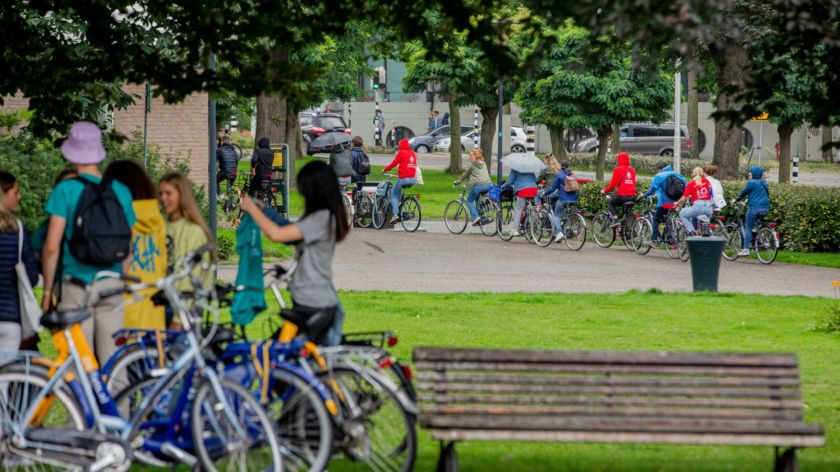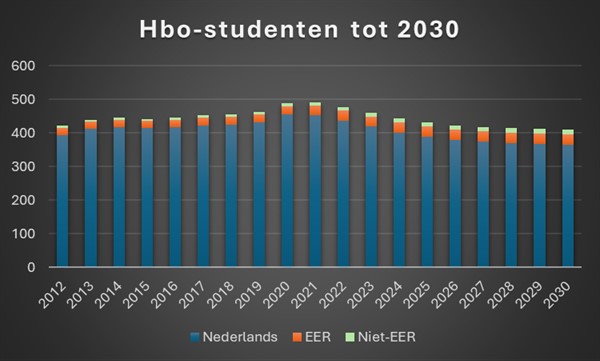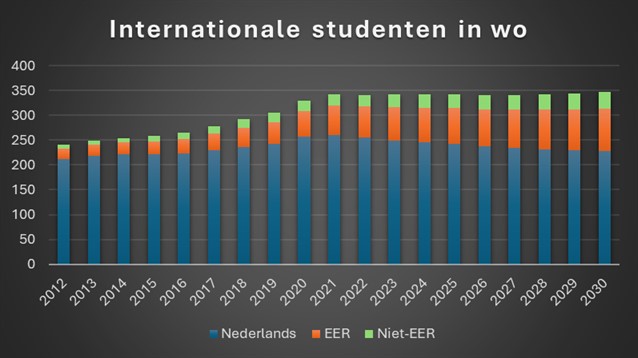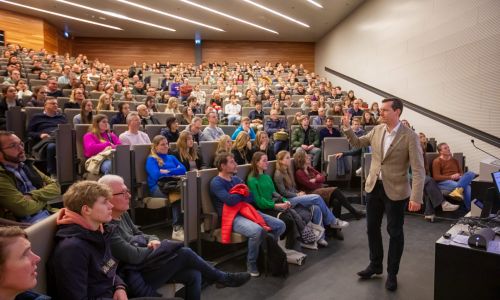Ministry: fewer students than expected in 2030, the number of international students continues to increase
-
 Introductie 2021. Foto: David van Haren
Introductie 2021. Foto: David van Haren
The number of international students continues to rise. Nevertheless, Dutch higher education will have some 42,000 fewer students in 2030 than officials previously expected.
This is according to new estimates of the number of pupils and students in the coming years, compiled by the Ministry of Education. The sector’s funding is aligned to these estimates.
More international students expected in Nijmegen
At Radboud University too, an increase in the number of international students is expected for the upcoming academic year. This is evident from the university’s new prognosis model. The expectation is that next year, 1108 international students will study at the Nijmegen university, compared to 953 this year. However, fewer first-year students (bachelor and master) are expected than the current year (7577 compared to 7817).
If the predictions come true, the number of international students in higher professional education (HBO) will rise from 42,000 now to 45,000 in 2030. This will be due mainly to more students coming from outside Europe.
Academic universities will attract even more, the officials predict. In their forecast, the number of European university students will increase from 66,000 in 2023 to 86,000 in 2030. For students from outside Europe, the figure will rise from 25,800 to 33,500.
Shrinkage
But there is also something else at play. “Fewer children have been born in the Netherlands in recent decades”, the ministry explains. The resulting decline in pupil numbers is already affecting Dutch secondary and vocational education.
The same effect will soon be felt in higher education, too. Overall, the universities of applied sciences are expected to shrink considerably. The total number of HBO students looks set to decline from 460,000 now to 409,500 in 2030.
That is 23,500 fewer than predicted in last year’s estimate. The shrinkage will mainly affect full-time Bachelor’s degree programmes. The other HBO strands (Master’s degrees and two-year associate degrees) will continue to grow.

In academic higher education (WO), the adjustment compared with last year amounts to 18,600 fewer students. The academic universities continue to grow, but not as fast as previously expected. If the predictions this time are right, they will take on only a few thousand extra students.

The ministry has had to revise its estimates in part because young Dutch people are taking gap years more often than in this past. This trend began when the new basic grant was first mooted: more school leavers started planning a year off in order to take full advantage of the grant. A year on, this option remains popular and so there are again fewer first-year enrolments.
Another reason for the adjustment is that officials have tweaked their ‘crystal ball’. The methodology has been adjusted. All being well, the ministry should now have a better insight into the different groups of international students, from within and outside Europe.
Politics
Four political parties, the PVV, NSC, VVD and BBB, are currently negotiating to form a new government. The new ‘reference estimates’ do not take into account any – possibly drastic – measures which they may agree in an effort to stem internationalisation, such as making undergraduate education almost entirely Dutch-taught again.
Translation: Taalcentrum-VU

